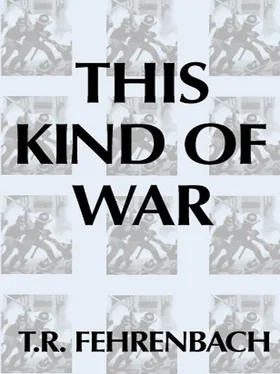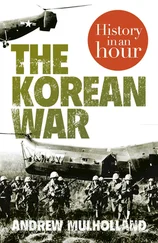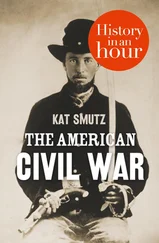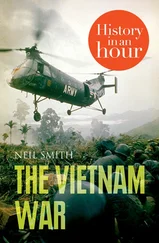The JCS, then, clearly understood that the problem was in essence not military but political. They were nervous and uncomfortable at having to make recommendations on it. They knew that military considerations, as they foresaw them, required the removal of troops from the Korean periphery, but also that the "rat leaving the sinking ship syndrome" was very prevalent in Asia. Korea was not militarily vital to American security. But American withdrawal from Korea might discourage Japan, which clearly was. American refusal to interfere with the fall of Nationalist China was already hurting American prestige in the Far East.
There were American planners who saw that a million ground troops, and a billion in aid, could hold the problem in check. But these planners knew that such things were not in the cards. The pragmatists in the high echelons of foreign policy could accomplish many things by fiat or executive agreement, but they could not raise troops or money against the popular will. This was a basic weakness to the policy of containment inherent in any parliamentary democracy, and as it proved in Asia, an insurmountable one, that would recur again and again, in China, in Korea, and finally in Vietnam.
Listening to the Joint Chiefs, the Government saw an out—one that got the United States off the hook militarily, and yet seemed to promise stability for Korea. They offered the question to the United Nations, which immediately, at American urging, accepted responsibility, voting Korea a U.N. ward and establishing a U.N. mandate over the divided nation.
On the surface, it look like a good solution, in keeping with the United States' professed aims in the world. Yet under the surface it was and remained an American withdrawal. There were only two centers of power in the world, and the United Nations was neither of them.
Stalin, who had asked how many divisions the Pope had, knew exactly how many divisions the U.N. maintained: none. When UNCOK, the United Nations Commission on Korea, tried to cross the dividing parallel, the Russians weren't even polite. UNCOK, after much debate, was able to accomplish nothing toward the reunification of Korea.
Despairing, the United Nations proposed free elections in South Korea to set up a rump state. After much political turmoil, these elections were held 10 May 1948.
The elections were reasonably honest, but Koreans were a disorganized and submissive people, almost without political education. It is not always easy to get an honest count in Chicago or Jersey City; what happened in Pusan or Seoul cannot be considered too harshly. The conservative parties behind Syngman Rhee came legally to power, and by 15 August the Taehan Minkuk, the Realm or Republic of Korea, had been established.
Russia protested each proceeding. Then, in September 1948, Russia established the Chosun Minjujui Inmun Kongwhakuk, the Korean Democratic People's Republic, in the North. This "republic" was in all respects what has since become known as a "tank democracy"; however, from the million Korean refugees that had fled Japanese tyranny Russia was able to cull many able, dedicated Communists to organize its government. Kim I1 Sung, a Soviet citizen and officer, became Premier. Kim I1 Sung could and did call upon the thirty thousand Korean veterans of the Chinese Communist and Soviet armies to return to form the nucleus of his Inmun Gun, or People's Army.
From its start, the North Korean State had a cohesion that the South lacked. It also had a purpose expressly denied Syngman Rhee, however much he might threaten it: the unification of the country.
The Russians had eyed the United States withdrawal, and misinterpreted it. But if the Soviets misunderstood American policy, it was perhaps because Americans did not clearly understand it, either. All the riddles within riddles wrapped in enigmas were not in the Kremlin.
To make a war, it is sometimes necessary that the eventual antagonists not know, or understand, what the other is doing. Russian policy had shifted to limited war, to subversion and terror and military operations on the periphery. American policy had drawn a line in Europe, but had not yet firmed in Asia. Russians had already moved in China, and in Indo-China, and set the future pattern. The United States had given no indication that it would oppose the Soviet game, provided its vital interests, such as Japan, were not involved.
The Russians, who had kicked up the dust, saw Americans waiting for the dust to settle. They could draw their own conclusions.
Americans, blissfully unaware of their weaknesses in conventional military strength, assumed that their government would, by blowing up any troubles, solve them, so that the Soviets would never dare to act.
To make a war, sometimes it is necessary that everyone guess wrong.
In the South of Korea, the economically impossible, democratically imperfect regime of Syngman Rhee struggled with massive problems. In the North, the Chosun Minjujui Inmun Kongwhakuk struggled only to overthrow Rhee. It used border raids, sabotage, guerrilla action, and propaganda, plus economic pressure.
One irrefutable measure of the success of cantankerous, autocratic, and Christian old Syngman Rhee was that the North failed. In spite of massive infiltration, treason, and chaotic political turmoil in South Korea, the majority of the people south of the parallel wanted no united nation that would be a tool of the Soviets.
On 1 January 1949 the United States recognized the new Republic of Korea. Special Representative to Korea John J. Muccio became the United States' first ambassador; the last American occupation forces were quickly withdrawn, though the United States by treaty agreed to help train ROK security forces. And economic aid continued; the Republic of Korea could not exist without it.
On 12 January 1950 Secretary of State Acheson spoke to the National Press Club in Washington. During the speech it came to public light that neither Korea nor Taiwan were within the United States' security cordon in the Far East. This was nothing new. The Korean decision had been made prior to 17 September 1947, when the United States had informed Russia of its intention to place the Korean problem before the United Nations. And the United States was still cautiously waiting for the "dust to settle" on the Chinese question.
Mr. Acheson neither blundered nor gave away state secrets. In global war—which was the only kind American policy makers contemplated or for which any service was preparing—neither Taiwan nor Korea was of much use. But neither Mr. Acheson nor his colleagues, who understood the European situation very well, quite knew or understood what was happening in Asia.
Europe could no longer be lost without a big war, but Asia had begun to teeter on the brink. There were plenty of farsighted men who were uneasy at the prospect, but in each case the dichotomy of the Truman Administration kept them hamstrung. Pragmatists and conservatives might be willing to put ground troops in Asia to fight "agrarian reformers and starving peasants"—but American liberal opinion was not.
The bulk of the people, indifferent as they were, might have been convinced, but the intellectuals, never. And the Democratic Administration did not feel it could completely circumvent its liberal spokesmen at home.
Dean Acheson drew his soon famous line, but he told the Russians nothing. By their process of reasoning, the United States had abandoned any real interest and power position in Korea when it had sent the question to the United Nations. Even as Mr. Acheson spoke, Russian and Chinese and North Korean leaders conferred in Peiping, agreeing that if the waters were muddied further in Korea the United States would stand aside, as it had during the fall of Nationalist China. They agreed that there would be no resort to atomic war if Korean attacked Korean; and observing American armed strength in the Orient, they correctly assumed that the United States had no other capability.
Читать дальше












